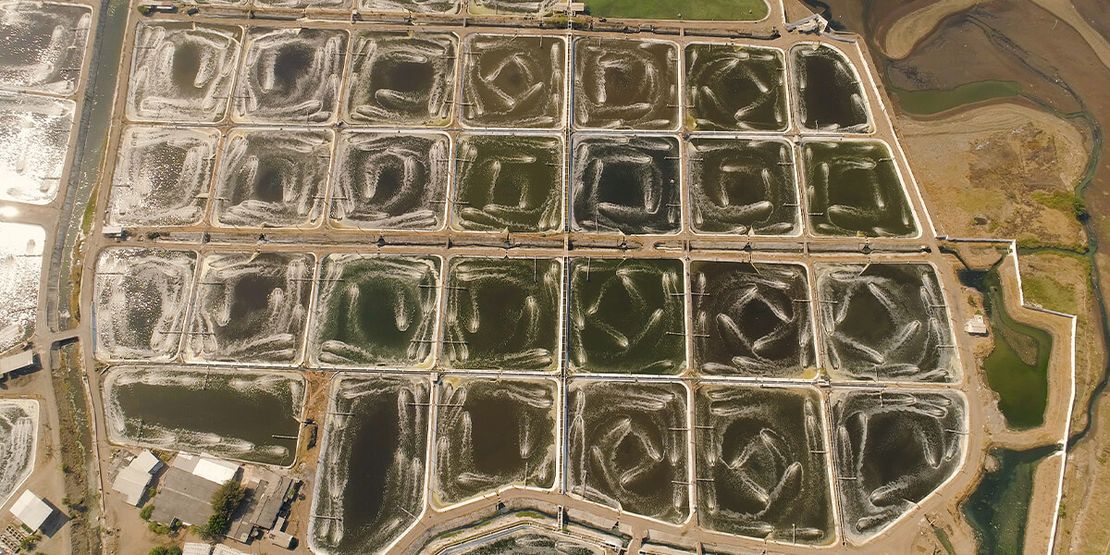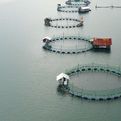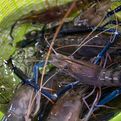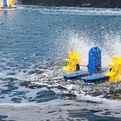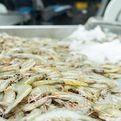Harnessing IoT Technology: Enhanced Shrimp Farming Efficiency
In the realm of shrimp farming, the integration of IoT (Internet of Things) technology emerges as a game-changer, revolutionizing operations and bolstering productivity. By leveraging a network of sensors and connected devices, farmers gain unprecedented insights into crucial parameters, empowering them to optimize conditions, streamline processes, and enhance overall efficiency.
In this article, we explore the manifold advantages of IoT technology in the context of shrimp farming.
Real-time Monitoring and Optimization
IoT technology equips shrimp farmers with the ability to monitor vital parameters such as water temperature, pH levels, dissolved oxygen, and salinity in real-time. This invaluable data enables farmers to swiftly identify deviations from optimal conditions and implement timely adjustments, ensuring the health and well-being of the shrimp.
By maintaining an optimal environment, farmers can foster faster growth rates and healthier shrimp populations, ultimately bolstering productivity and profitability.
Feed Management and Waste Reduction
With IoT-enabled sensors tracking feed and nutrient levels, farmers can fine-tune feeding schedules and quantities to ensure shrimp receive a balanced diet while minimizing waste. This meticulous approach to feed management not only enhances shrimp health but also reduces feed costs, contributing to improved profitability and sustainability.
By leveraging IoT technology, farmers can achieve greater precision and efficiency in feed utilization, maximizing resource utilization while minimizing environmental impact.
Disease Management and Early Detection
IoT technology plays a crucial role in disease management by enabling early detection of illness within the shrimp population. By continuously monitoring key health indicators, such as behavior patterns and physiological parameters, IoT sensors can alert farmers to potential disease outbreaks in their nascent stages.
Armed with this preemptive knowledge, farmers can promptly implement targeted interventions, curbing the spread of disease and mitigating associated losses. The proactive approach facilitated by IoT technology translates into lower mortality rates and improved overall yields.
Enhanced Supply Chain Management
IoT technology extends its benefits to supply chain management, offering real-time visibility into shrimp production and harvesting processes. By leveraging IoT-enabled tracking systems, farmers can accurately monitor inventory levels, track product movement, and optimize logistics operations. This granular insight enables more efficient planning, reducing waste and minimizing inefficiencies throughout the supply chain.
From farm to market, IoT technology empowers farmers to make informed decisions and streamline operations, ultimately enhancing profitability and customer satisfaction.
IoT Technology Integration in Shrimp Farming
In conclusion, the integration of IoT technology represents a transformative force in the realm of shrimp farming, unlocking new realms of efficiency, productivity, and sustainability. By harnessing real-time data and actionable insights, farmers can optimize environmental conditions, fine-tune feeding regimes, manage disease risks, and streamline supply chain operations.
The result is a more resilient, profitable, and environmentally responsible shrimp farming industry, poised to meet the demands of a rapidly evolving global market. With IoT technology as a steadfast ally, shrimp farmers embark on a journey towards a future defined by innovation, efficiency, and prosperity.
Riley Sinclair (Digital Aqua Bear)
Hi! I'm Riley Sinclair (Digital Aqua Bear), and I'm exploring the world of digital aquaculture farms. Join me as I delve into innovative methods and sustainable practices for cultivating aquatic life in digital environments. Let's uncover the potential of digital aquaculture farms to revolutionize food production and environmental sustainability.
More From Digital Aqua Farm
Shrimp Farming Expenses: Strategies for Cost Reduction and Sustainability
Riley Sinclair (Digital Aqua Bear)
Shrimp Farming in Thailand: Navigating Challenges and Embracing Sustainability
Riley Sinclair (Digital Aqua Bear)
Aeration Options in Shrimp Farming: A Complete Guide
Riley Sinclair (Digital Aqua Bear)
Solar Energy in Shrimp Farming: Empowering Sustainability and Profitability
Riley Sinclair (Digital Aqua Bear)
Shrimp Farming Global Events: Exploring the Major International Stage
Riley Sinclair (Digital Aqua Bear)
Optimizing Aqua Farming: Exploring the Critical Role of pH Levels
Riley Sinclair (Digital Aqua Bear)


